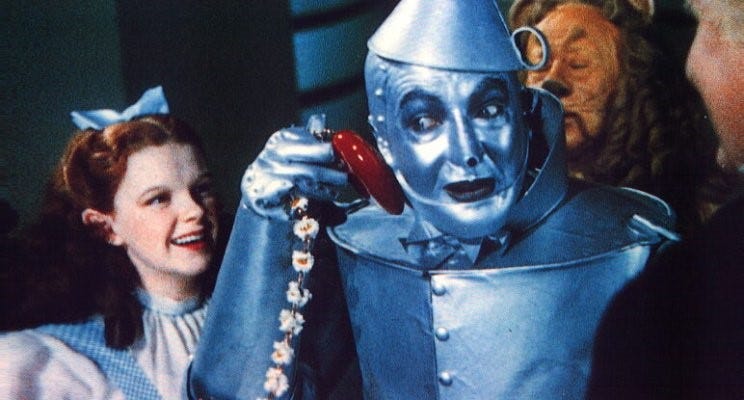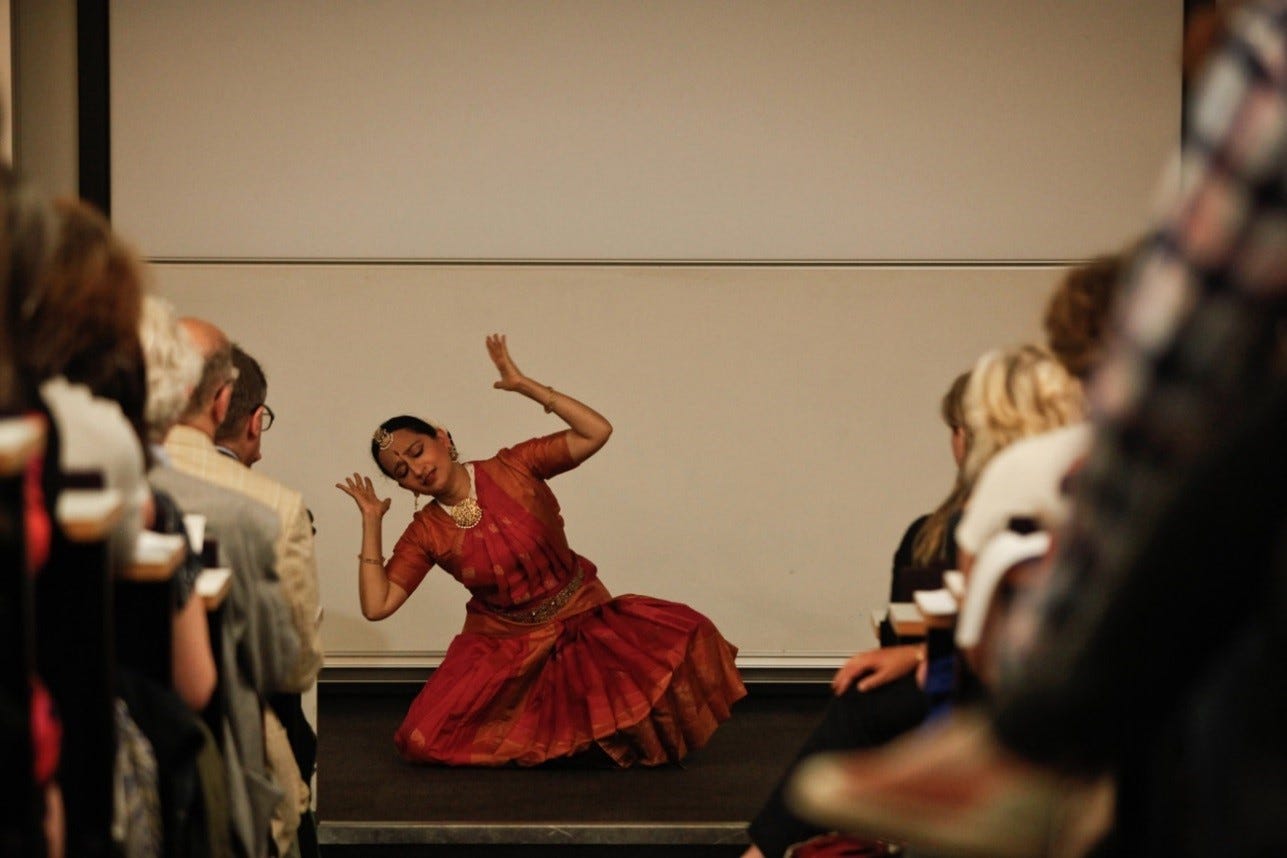Are we being ambitious enough for public engagement at UCL?
By Lizzy Baddeley, on 9 January 2018
This blog was originally published on the UCL Culture blog.
2018 marks the tenth anniversary of UCL’s Public Engagement Unit – not quite a silver or diamond jubilee – but still a date to celebrate together, to pause and reflect on what we have collectively achieved in the last decade and to start a conversation about where we want to get to by 2028.
Ten years is popularly known as the ‘tin’ anniversary – a rich seam to mine for metaphors. My mind is drawn immediately to thoughts of the Wizard of Oz’s Tin Man and his yearning for the heart that the tinsmith forgot to give him. We see public engagement as the life blood of the university, the multiple relationships between researchers and communities outside enabling a constant circulation of conversation, questions and ideas which enrich both UCL’s research and teaching and the lives of those around us.

The Tin Man from The Wizard of Oz
A common refrain amongst UK public engagement professionals is that their work is still seen as peripheral within their institutions. I am in the enviable position of being able to say to my peers at other universities that the last ten years has placed public engagement firmly at the heart of UCL; we have one of the largest centrally-funded public engagement teams in the UK, a thriving Public Engagement Network, well-established funding and training opportunities and an ambitious UCL Public Engagement Strategy being delivered in partnership with our colleagues in UCL Culture, UCL academics, students, Professional Services colleagues and our external partners. What more could I wish for?
Well, you won’t be surprised to hear that there are still a few things on my wish list for 2028.
By 2028, I would like to see UCL’s reputation for quality public engagement strengthened even further. Students and staff will be attracted to UCL, not just for its academic excellence, but also for the strength of its commitment to real world impact and engagement. The future I would like to see is one in which dissertation, PhD topics and research questions within a broad range of disciplines are increasingly identified in dialogue with, and their outputs exploited by, communities outside UCL. For this to be a reality, we will need to see some serious investment in UCL’s cross-institutional public engagement infrastructure to match the serious ambition of UCL 2034, the London Strategy and our vision for community and public engagement within UCL East.
We already have outstanding researchers who have blazed a trail in forging their own relationships and developing standalone projects – but think how much more we could achieve, and how much faster, if we had institutional platforms in place to connect staff and students with Camden and Olympic Borough communities.
Work already underway should help. Programmes such as the pilot Evaluation Exchange have the potential to transform the way we connect UCL researchers and voluntary sector organisations across London, but it requires long term commitment and sustained funding. The benefits far outweigh the costs; Doctoral Training leads across UCL could exploit the Evaluation Exchange as the first port of call for their Knowledge Exchange commitments, UCL researchers would have the opportunity to develop and apply their skills in real-world situations while working in multidisciplinary teams, and London’s voluntary sector capacity and resilience would grow. The icing on the cake will be UCL’s ability, alongside its existing excellence in volunteering, to document and highlight the breadth and depth of its commitment to making London a better place to live and work in for all.
I’d also love to see more academic conferences taking the lead from researchers such as Dr Deborah Padfield (Slade School of Fine Art) and Prof Joanna Zakrzewska (Eastman Dental Hospital) who were the driving forces behind ‘Encountering Pain: hearing, seeing, speaking,’ a free two-day live networking event and international conference held at UCL in July 2016. It diverted radically from the traditional academic conference format in order to encourage exchange between different groups affected by pain and make academic enquiry more accessible to all. Incorporating performance was just one of the ways they achieved this, and mirrors UCL Culture’s approach of using the arts to promote dialogue and mutual understanding in a research engagement context.
Bridging the gap between theory and practice in the public engagement context is also of increasing interest to me and my team and is at the heart of our RCUK-funded work on the Ingrained project. Over 2018, we will be exploring the local relevance of the global issues at the heart of Grand Challenges with four London community organisations, researchers involved in the Grand Challenge of Transformative Technology and academics from UCL Science and Technology Studies. The aim is to build some long-lasting relationships and to consider how to embed public engagement at a more fundamental level within UCL’s overarching Research Strategy.

Image from ‘Encountering Pain: hearing, seeing, speaking,’ a free two-day live networking event and international conference at UCL in July 2016.
These are just some of my wishes for the decade to come.
What I really want to know is what you wish for and how you would like to work with us to achieve it? Throughout 2018, UCL Culture will be celebrating UCL’s public engagement past and present and hosting an ongoing conversation about its future. It’s going to be a busy year.
In February UCL Culture will be taking Bright Club to East London with Stratford Circus performances highlighting UCL’s All Stars and some new faces. March sees us marking the achievements of all involved in the Evaluation Exchange and an invitation to join us in a conversation about how to continue the work. Spring heralds two Creating Connections events organised with our colleagues in the UCLU Volunteering Services Unit – March in East London and another in April in partnership with the Francis Crick Institute and the Living Centre. June brings the Provost’s Public Engagement Awards (nominations are open now) and a celebration of a decade of the remarkable achievements of UCL staff, students and their community partners.
So please get involved in this year’s conversation, become part of our network, tweet us, and email us with your questions, ideas and thoughts and help us be even more ambitious about the decade to come.
Laura Cream
Head of Public Engagement, UCL
 Close
Close


